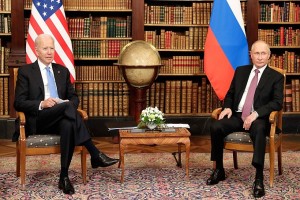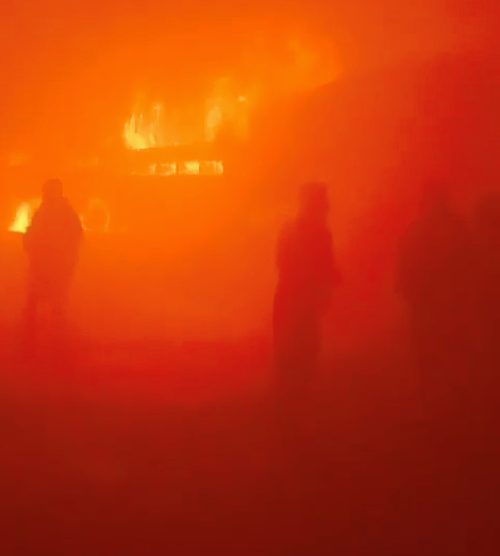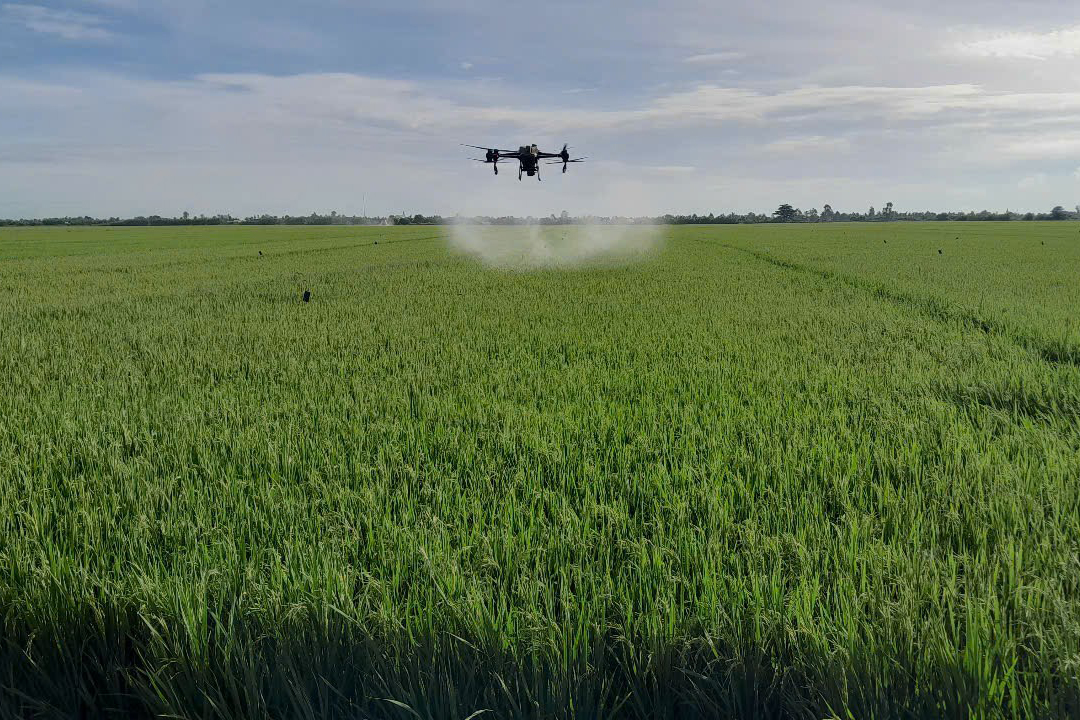
Geneva: President of the United States of America Joseph R. Biden and President of the Russian Federation Vladimir Putin today came out with a joint statement at the summit meeting between the two leaders saying that through this dialogue, “we seek to lay the groundwork for future arms control and risk reduction measures”.
“The recent extension of the New START Treaty (a nuclear arms reduction treaty between the United States and the Russian Federation) exemplifies our commitment to nuclear arms control. Today, we reaffirm the principle that a nuclear war cannot be won and must never be fought,” the leaders of the two superpowers stated and added that both nations will embark together on an integrated bilateral Strategic Stability Dialogue in the near future that will be deliberate and robust.
Both Presidents noted that the United States and Russia “have demonstrated that, even in periods of tension, they are able to make progress on our shared goals of ensuring predictability in the strategic sphere, reducing the risk of armed conflicts and the threat of nuclear war.

The much awaited first summit talks between Biden and Putin began with the latter reminding Biden about “a backlog of issues in Russian-US relations that require discussion at the highest level”. Responding to Putin, Biden acknowledged that “it’s always better to meet face to face”.
As the meeting began, Putin hoped that it will be productive. To this Biden was more categorical: ” We will try to determine where we have mutual interests and we can cooperate. And where we don’t, establish a predictable and rational way in which we disagree. Two great powers.”
The Russian-American consultations began with a restricted-format meeting that included Russian Foreign Minister Sergei Lavrov and US Secretary of State Antony Blinken. After that the talks continued in an expanded format.
The meeting started at the backdrop of a tense relationship in recent times with Biden calling Putin a “killer”. Biden though laughed it off at the NATO headquarters in Brussels on June 14, 2021, saying “I don’t think it matters a whole lot, in terms of this next meeting we’re about to have”.
Also read:
- Amidst prevailing tension, top officials discuss prospect of presidential summit between USA and Russia
- Russia resorts to “tit-for-tat” measures after USA imposed sanctions over cyber attacks, and warned Moscow against army build up on Ukraine border
However , there were much more on the table at the backdrop of USA imposing sanctions on Russia over cyber attacks, and warning Moscow against army build up on Ukraine border and in “occupied” Crimea. In April this year, Russia had resorted to tit-for-tat measures by recommending expulsion of 10 US diplomats and that the US ambassador in Moscow had left the country for ‘consultation’, a day after American President Joe Biden expelled 10 Russian diplomats for their interference in last year’s US presidential elections.
It may be recalled that on the eve of the meeting, a senior White House official had told media persons that both ambassadors would be present in Geneva at the time of the Summit.
There were many larger issues on the discussion table that included ransomware, which was expected to be a significant topic of conversation. Both were also to discuss the broader issue of cyber norms, cyber rules of the road tomorrow in the discussion. Besides, prior to the meeting, the official had also referred to the imprisoned Russian political activist Aleksey Navalny, and stated that “Certainly human rights are not off the table, and individual high-profile cases are not off the table”. Also high in the agenda was Belarus and the recent incident with Ryanair. Biden himself had said in Brussels that “Navalny’s death would be another indication that Russia has little or no intention of abiding by basic fundamental human rights. It would be a tragedy. It would do nothing but hurt his relationships with the rest of the world, in my view, and with me.
Biden said in the post Summit press conference that he held separately as scheduled that he raised the Navalny issue with Putin., and that the two leaders also discussed the sensitive issue of cybersecurity that had concerned the USA that made charges of Russia repeatedly interfering in the US elections and disrupting systems.
Click here to read transcript of Biden’s Press Conference here
“Let’s get this straight: How would it be if the United States were viewed by the rest of the world as interfering with the elections directly of other countries and everybody knew it? What would it be like if we engaged in activities that he engaged in? It diminishes the standing of a country that is desperately trying to make sure it maintains its standing as a major world power,” Biden said. He informed, “I pointed out to him we have significant cyber capabilities. … He doesn’t know exactly what it is but he knows it’s significant. If in fact they violate these basic norms, we will respond … he knows, in a cyber way.”
Besides, responding to a question, Biden made it clear that he was “not confident” that Putin would change his behaviour – “I’m not confident…I said what will change their behaviour is if the rest of the world reacts to them and it diminishes their standing in the world. I’m not confident of anything. I’m just stating the facts.”
Biden went on to say that Putin knows “there are consequences”. He explained:“And one of the consequences that … I suspect you may all think doesn’t matter, but I’m confident matters to him and matters to him and other world leaders of rogue nations: His credibility worldwide shrinks.”
Putin in his post-Summit press conference said both leaders have now agreed to open consultations on cyberattacks. He though accused the USA of currently carrying out most cyberattacks. On the issue of Navalny, he accused him of fomenting revolution.
Click here to read translated transcript of Putin’s Press Conference here
When asked if the Summit opened the door to a “new stage” in U.S.-Russia relations, Putin said it was “difficult to say”. He said in Russian which was loosely translated as, “Many of our joint positions are divergent but nevertheless I think both sides manifested a determination to try and understand each other and try and converge our positions.”
White House was categorical before the Summit that Washington was “not expecting a big set of deliverables out of this meeting”, but was seeking three basic things:
- a clear set of taskings about areas where working together can advance our national interest and make the world safer.
- a clear laydown of the areas of America’s vital national interests, where Russian activities that run counter to those interests will be met with a response.
- a clear explication of the President’s vision for American values and our national priorities.
“Those are the three things that we’re trying to accomplish, and the President will do that over the course of the meeting with President Putin,” the White House had stated.
Earlier during a press conference at NATO headquarters in Brussels on June 14, 2021, Biden had categorically said that while leading off the discussion among the 30 nations, the NATO members had talked about “Russia’s aggressive acts that pose a threat to NATO and to our collective security”. However, he had made it clear that “I’m not looking for conflict with Russia, but that we will respond if Russia continues its harmful activities and that we will not fail to defend the Transatlantic Alliance or stand up for democratic values. As Allies, we also affirmed our continued support for the sovereignty and territorial integrity of Ukraine”.
So far as Putin was concerned, he had told NBC in an interview on June 14, 2021 that “We have a bilateral relationship that has deteriorated to what is the lowest point in recent years”. He had added: “However, there are matters that need a certain amount of comparing notes and identification and determination of mutual positions, so that matters that are of mutual interest can be dealt with in an efficient and effective way in the interests of both the United States and Russia.”
However, Russian Foreign Minister Sergey Lavrov had already indicated much with his remarks at the 36th Meeting of the Foreign Ministry’s Council of the Heads of Constituent Entities of the Russian Federation, Moscow, on June 15, 2021, where he had stated: “We are interested in establishing new regional organisations, including the Bering/Pacific-Arctic Council, which implies the participation of a number of Russian Arctic regions and Alaska. So far, our US partners have been thinking over this proposal. To be sure, we are still open to developing inter-regional cooperation with the United States within the framework of the Russian American Pacific Partnership.”
For the Summit, around 1:00 p.m. (EST), President Putin arrived in Geneva and was the first to arrive at the villa where the meeting was taking place, where the meeting is taking place. He was greeted by the Swiss President Guy Parmelin on arrival and taken inside. President Biden arrived after President Putin and was taken back inside where both leaders shared a short greeting with the Swiss President. \All three of them then walked back outside where media persons were present for that moment.
President Biden thanked President Parmelin for hosting the U.S.-Russia Summit in Geneva on June 16, and he expressed appreciation for Switzerland’s unique historical role providing a neutral ground for diplomacy and negotiations.
– global bihari bureau





